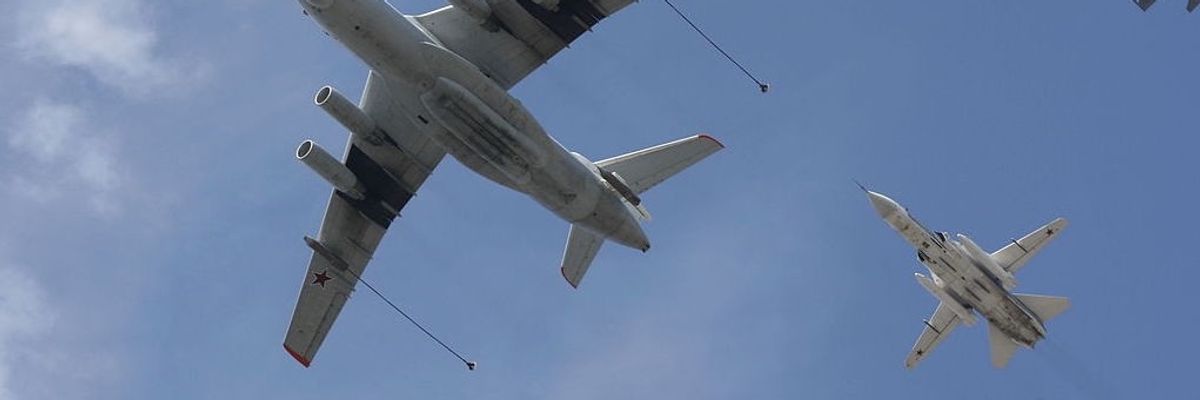Plenty of voices in official Washington continue to push for a no-fly zone over Ukraine — the most recent public call came earlier this week when over two dozen former U.S. officials and ambassadors penned an open letter pressing for limited airspace restrictions to open up “humanitarian corridors” and pathways for “additional military means for Ukrainian self-defense.” So far, the Biden administration has resisted these calls. A new letter, signed by nearly 80 scholars and journalists from across the political and ideological spectrum, explains why he needs to keep resisting.
“A no-fly zone would commit the U.S. and NATO forces to shoot down any Russian aircraft that enter. It would be naive to think that merely declaring a no-fly zone would convince the Russian military to comply voluntarily," reads the letter. "In short, a no-fly zone would mean going to war with Russia.”
Read the full letter, led by Stephen Wertheim of Carnegie Endowment for International Peace and Will Ruger of the American Institute for Economic Research, here.
The wide ranging group includes QI president Andy Bacevich, National Review's Michael Brendan Dougherty, Emma Ashford, Peter Beinart, Jack Matlock, Aaron David Miller, Michael O’Hanlon, Ben Judah, Nora Bensahel — lots of individuals who may not agree with each other on a host of other foreign policy issues — said they “deplore Russia’s aggression, admire the bravery of Ukrainians,” but “it strains credulity to think that a U.S. war with Russia would make the American people safer or more prosperous.”
“To the contrary, going to war with Russia, a nuclear peer of the United States, would expose Americans to vast and unnecessary risks. A war that expands beyond Ukraine’s borders could also inflict damage across Europe and weaken America’s NATO allies. We call upon the administration to avoid such a gambit and continue to use appropriate diplomatic means and economic pressure to end the conflict.”
The missive has joined what is turning out to be a battle of letters on the subject. Former Ukrainian parliamentarian Hanna Hopko joined a group of former female officials and politicians pleading with President Biden to impose a NFZ, reminding him that when they met during his time as vice president, he had promised to assist her fellow Ukrainians against Russia.
"I implore the American people to act!" Hopko wrote, calling on "every American to help us defend Ukraine’s future from an evil Russian attack."
Critics of a no-fly zone say a fighting war over Ukraine would actually make the humanitarian situation worse. Furthermore, it could bring the U.S. and Russia to a nuclear confrontation for the first time since the Cuban Missile Crisis — “two nuclear superpowers, with the capacity between them to annihilate not just each other but the whole of humanity, exchanging missiles,” wrote QI’s William Hartung and Anatol Lieven, also signatories, earlier this week.
“Russian President Vladimir Putin will pay for his reckless gamble in Ukraine,” today’s letter concludes. “The United States should respond in responsible ways, not make a reckless gamble of its own.”
















